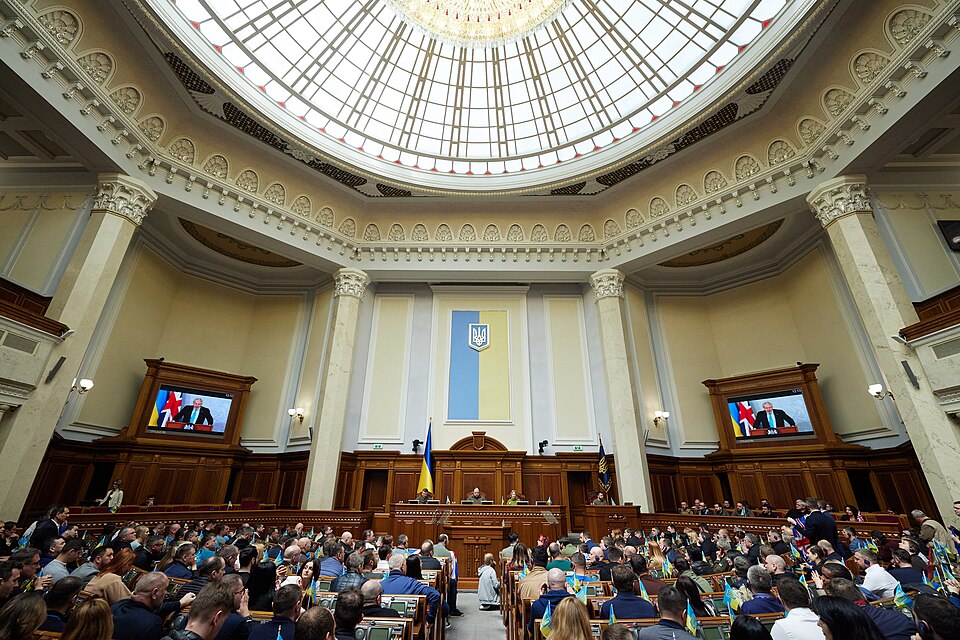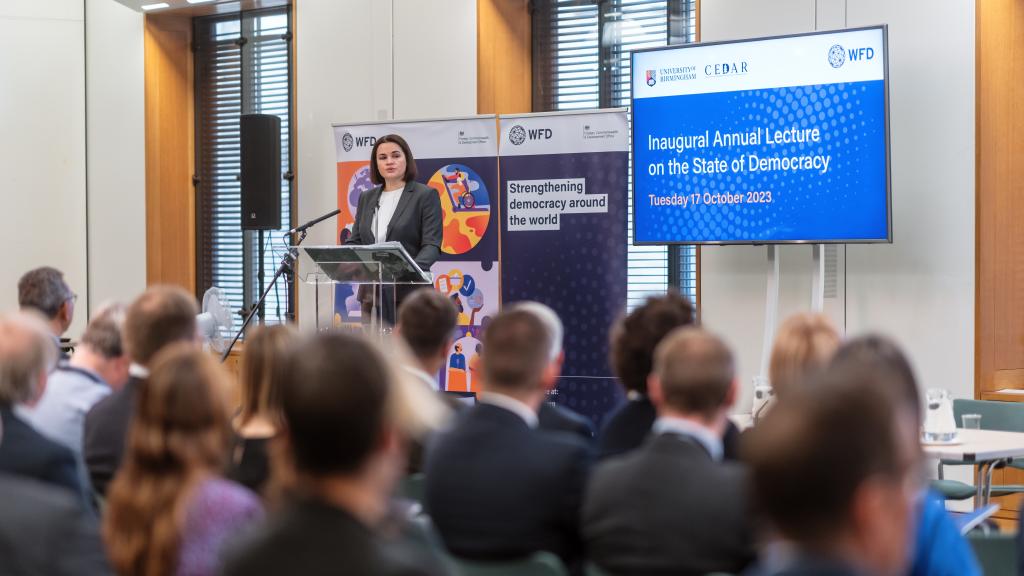Past events

Through their work, civil society is directly connected to community members and is aware of changes and impact laws have on the people they are meant to serve.
To support civil society playing a key role in democratic governance, WFD and Kaleidoscope Trust developed a guide on post-legislative scrutiny for civil society organizations, that details the steps civil society can take to meaningfully contribute to legislative impact assessments.
At this seminar, the authors of the guide, Grazia Careccia and Alicia Wallace, will present the research approach informing the guide, present the findings emerging from piloting the guide in several countries, and share practical strategies for civil society to engage in post-legislative scrutiny.
The event is open to civil society organisations, students, academics, parliamentary staff and other interested individuals in the UK. The seminar takes place as an IN-PERSON event at the premises of the Institute of Advanced Legal Studies (IALS) in London. Following the one-hour seminar, participants will be invited to networking drinks at the IALS.
Online participation won’t be foreseen. Prior registration is required for all attendees. Any registered participant who feels unwell or has covid-symptoms on the day of the event is expected to cancel participation.
Programme:
Welcome
- Dr Constantin Stefanou, IALS Director of Taught Programmes and Director of Sir William Dale Centre for Legislative Studies, Institute of Advanced Legal Studies (IALS) of the University of London.
- Franklin De Vrieze, Senior Governance Adviser at Westminster Foundation for Democracy (WFD)
Presentation of the publication and findings from piloting
- Grazia Careccia, human rights expert, co-author of the publication
- Alicia Wallace, gender and democracy researcher, co-author of the publication
Response
- Parliamentary official
- Dr Maria Mousmouti, Associate Research Fellow, Institute of Advanced Legal Studies, University of London
Q&A with the audience, facilitated by Sophia Fernandes, Senior Adviser Political Inclusion at WFD.
Closing: Sophia Fernandes, Senior Adviser Political Inclusion at WFD.
Networking drinks.
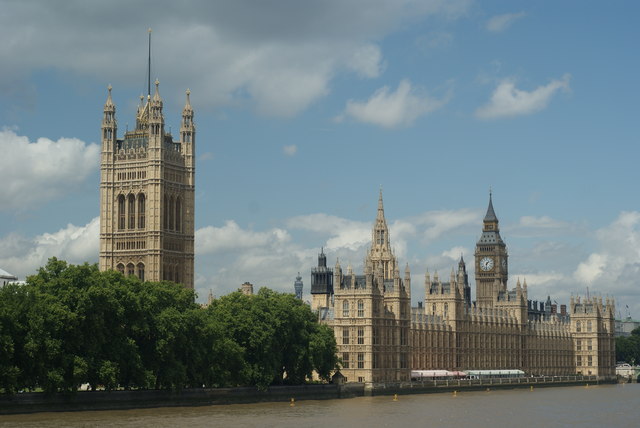
Parliaments globally have the important responsibility of engaging in effective oversight of government actions through inclusive representation and informed policymaking. In crisis contexts, these responsibilities are even more critical.
The COVID-19 pandemic continues to require governments to deliver resources to impacted and underserved citizens. Additionally, with growing threats from climate change and global conflicts, governments everywhere will inevitably be confronted by crises, and must be prepared to support citizen security and recovery in those times of need.
As the representative branch of the government, parliaments remain on the front lines in ensuring resources reach citizens during a crisis in a timely manner.
In this session, organised with the National Democratic Institute as part of the AGORA Parliamentary Development Community of Practice, members of parliament, citizen groups, and experts, will convene to discuss the issue of “parliamentary accountability” as it relates to crisis contexts.
Specifically, the issue will be explored through three key themes:
- foundations and globally-upheld norms in parliamentary accountability good practices;
- parliament’s role in maintaining accountability of government service delivery in a crisis;
- mechanisms that ensure parliament remains accountable to its core mandates to ensure effective action in crisis contexts.
The session will be conducted primarily in English. Some presentations may be offered in a speaker’s host language with interpretation available for participants. Participants may also request the translation of program materials following the session.
The event will take place from 8 am to 11 am ET which is 2pm to 5pm CET

Sunset clauses were in high demand in COVID-19 acts and regulations, with the main function to ensure that the restrictive measures adopted to respond to the pandemic extended no longer than necessary.
To launch the latest publication in WFD's PLS series, this event will examine the relevance, mechanics and the practical lessons learned of using sunset clauses.
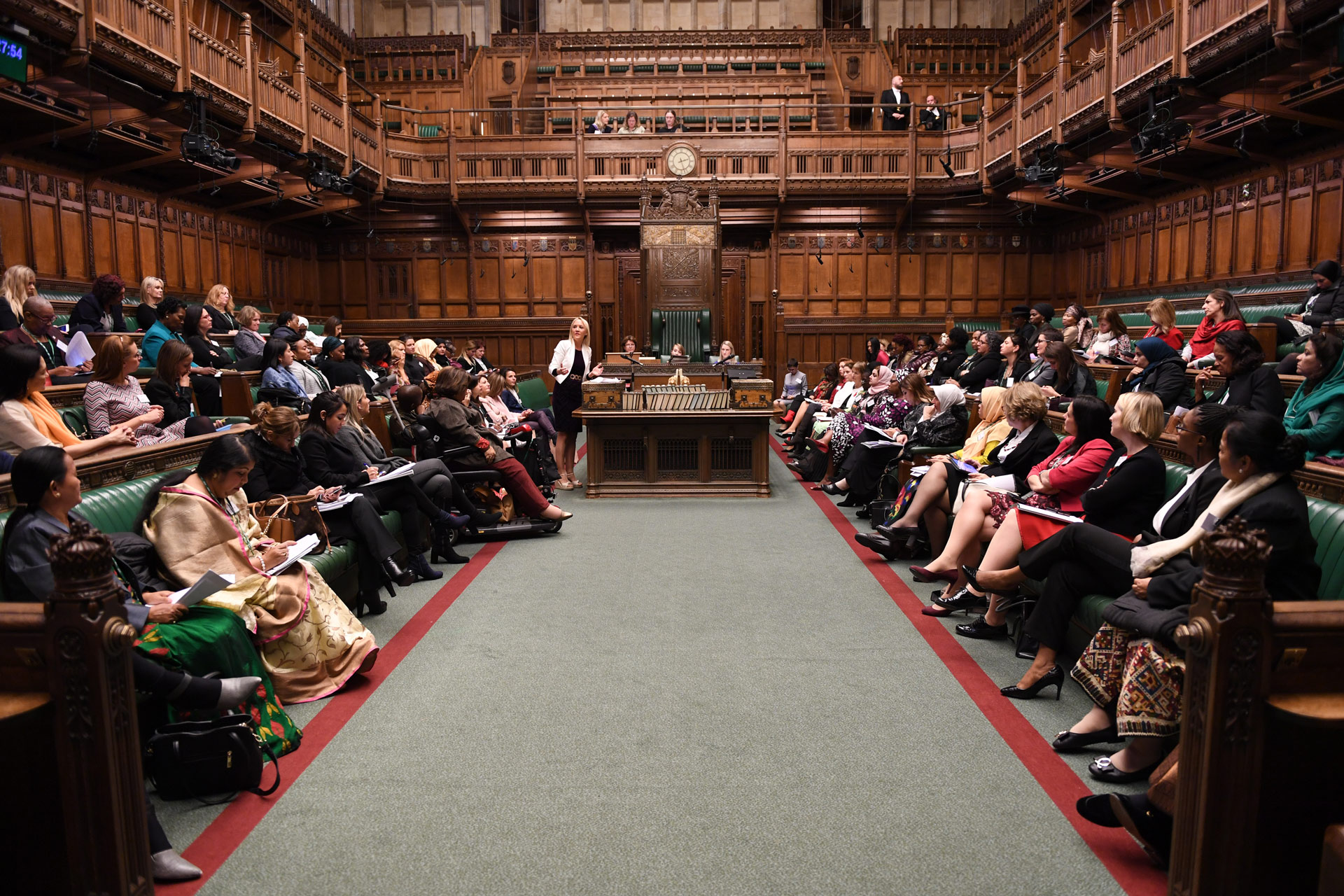
This event marks the publication of the latest research in WFD’s anti-corruption and integrity series, Anti-corruption and gender: the role of women’s political participation. Dr Ortrun Merkle will outline the project, drawing on three important case studies from Ukraine, Kenya and Indonesia.
Although much remains to be explored, the research shows clear linkages that are important to understand for politicians, anti-corruption advocates, and those working on increasing women’s representation in political office.
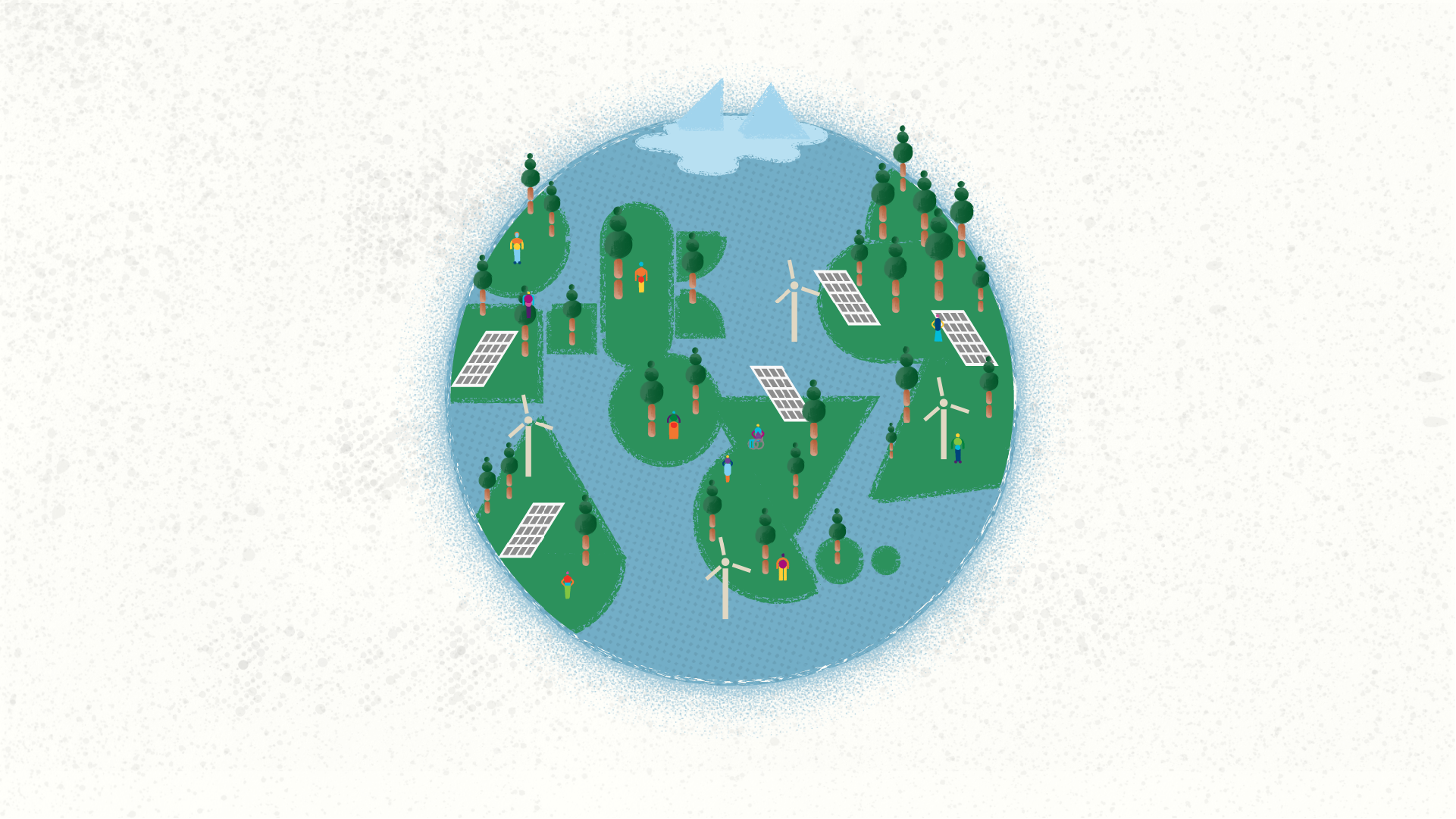
On 12 November 2021, WFD convened a panel discussion as part of the COP26 public events programme. This event was held in collaboration with the World Resources Institute (WRI), International IDEA, Climate Action Network (CAN), E3G and the Business, Energy and Industrial Strategy Committee (BEIS) of the UK House of Commons.
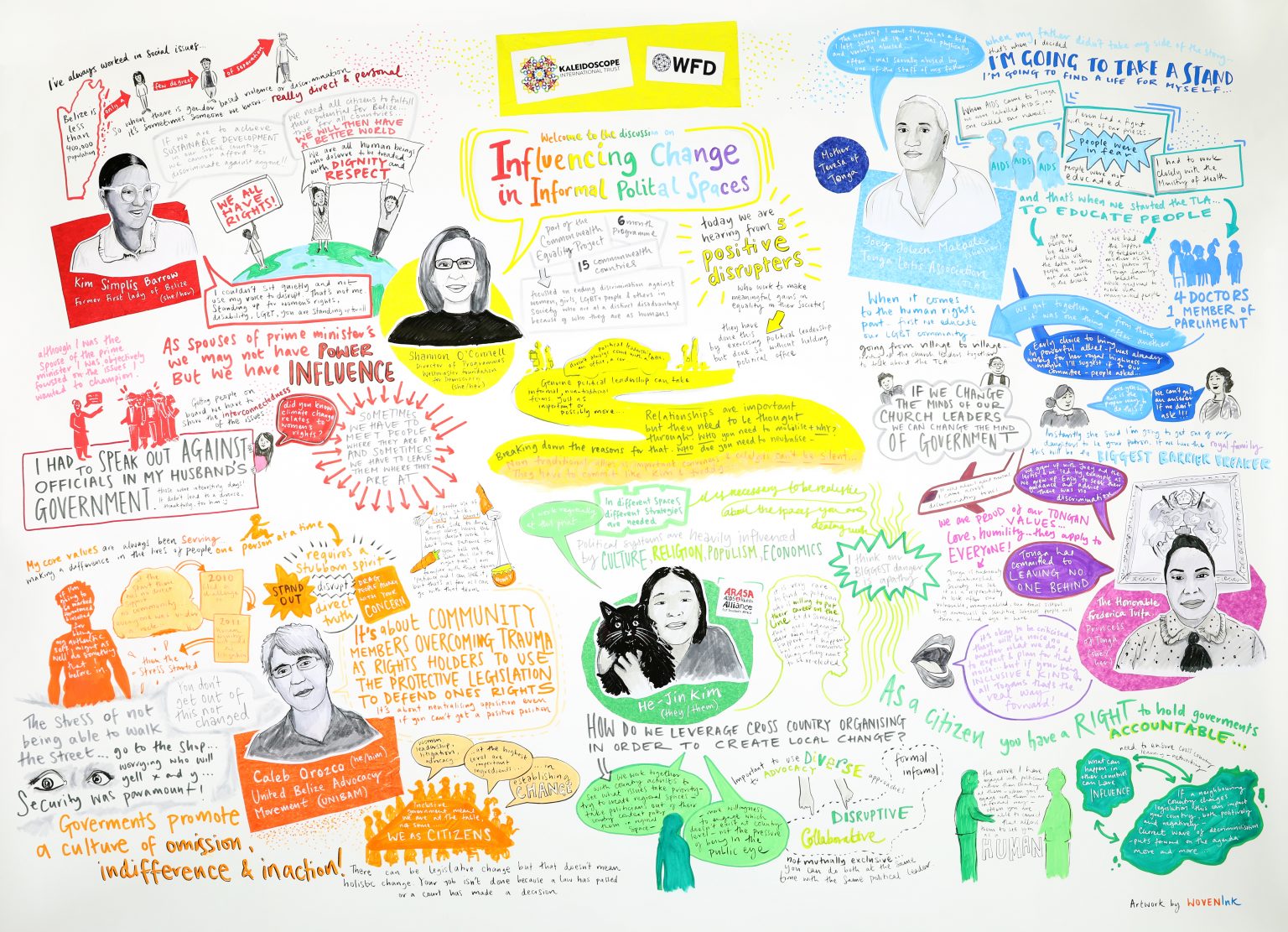
How do civil society organisations and change-makers use informal platforms to advance equality?
WFD and Kaleidoscope Trust’s programme on equality in the Commonwealth was designed to help foster an environment in which local decision-makers and civil society actors are better able to advance equality and ensure that women and girls, and LGBT+ people are included in politics and society. It worked to help create space and opportunity for enhanced collaboration and engagement between lawmakers and civil society organisations.
Strong links and relationships between civil society, thought-leaders, and decision-makers make it easier for them to work together for equality. Strengthening these relationships and enabling change-makers to learn from one another was a key aim of the programme.
On 23 March 2021, WFD and Kaleidoscope Trust hosted an event to explore the role that informal political spaces can play in creating change for women, girls and LBGT+ people.
Shannon O’Connell, WFD’s Director of Programmes, facilitated a conversation between:
- Kim Simplis Barrow, Former First Lady of Belize
- Joleen Mataele, Tonga Leitis Association
- The Hon. Frederica Tuita, Princess of Tonga
- Caleb Orozco, United Belize Advocacy Movement
- He-Jin Kim, AIDS and Rights Alliance for Southern Africa
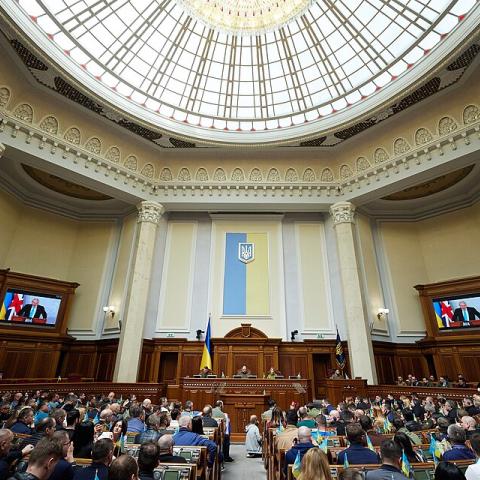
In the wake of the Ukraine Recovery Conference 2025, Westminster Foundation for Democracy (WFD) invites you to a powerful and timely conversation grounded in the latest report: “The gendered impact of the Russian full-scale invasion on the priorities of Ukrainian MPs’’.

Join us for this important two-day event on 8–9 July 2025, online and in Chișinău, Republic of Moldova. The conference is proudly hosted by the Central Electoral Commission of Moldova in partnership with Westminster Foundation for Democracy, International IDEA, UNDP, the Council of Europe, IFES, and the International Republican Institute and other organisations.

This seminar will introduce WFD’s trauma-informed, cyclical risk assessment framework designed to help political institutions reflect on and address systemic risks that perpetuate violence against women in politics (VAWP). The event will feature a keynote, methodology presentation, and a high-level panel discussion with regional stakeholders.

Join us for an engaging conversation exploring the merits, requirements, and challenges of conducting Post-Legislative Scrutiny (PLS) by sub-national parliaments and assemblies.
